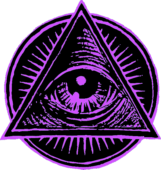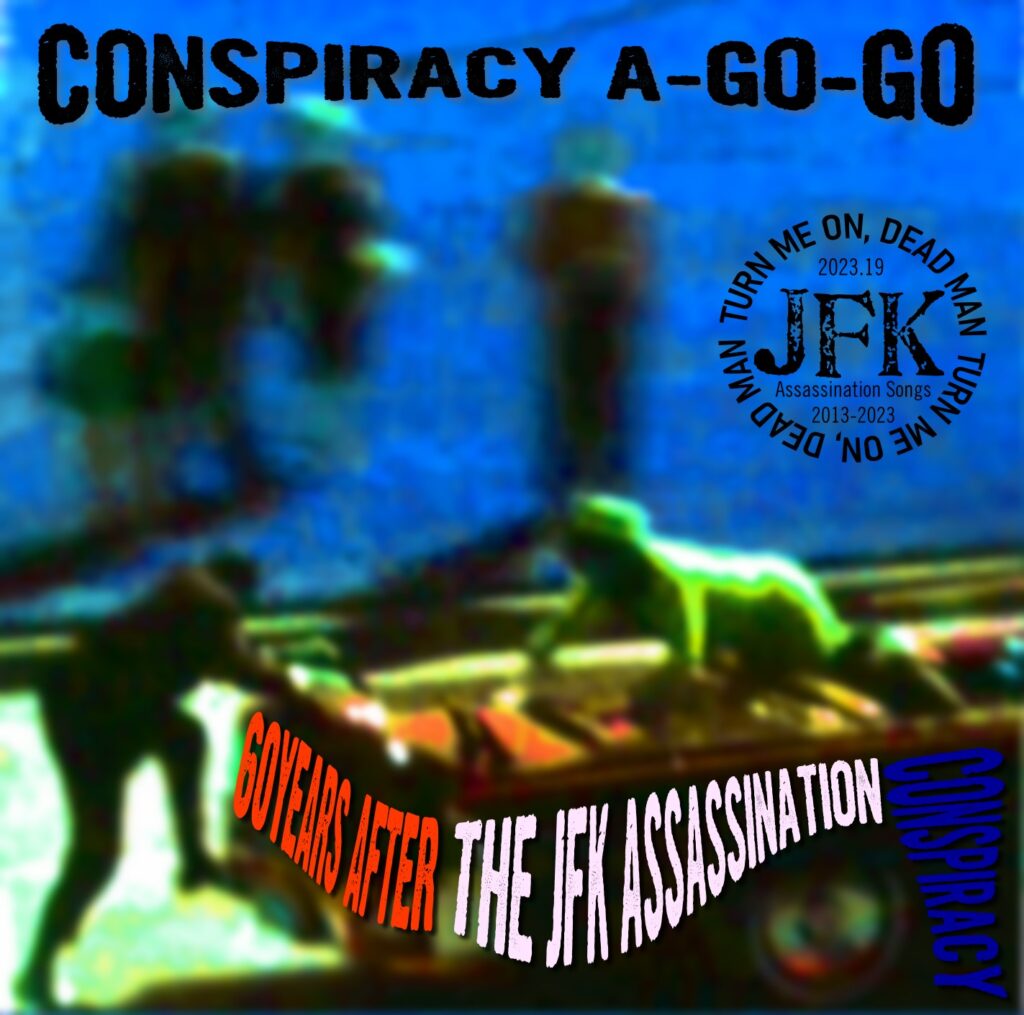November 22nd is the 60th anniversary of the assassination of President John F. Kennedy. This special episode of Turn Me On, Dead Man focuses on songs that reference the JFK assassination. The 26 tracks in the playlist for this episode are from a variety of genres and all have been released in the last 10 years.
| time | artist | title |
|---|---|---|
| 1:54 | Minutes to Midnight | Love Field |
| 6:12 | Les Niobides | Slow Motorcade In Dallas |
| 7:32 | Civillian | JFK |
| 11:15 | NightSwim | Special Bulletin |
| 14:23 | Bassoniq | JFK |
| 16:28 | Bummer | JFK Speedwagon |
| 18:53 | The Assassinations | J.F.K. |
| 20:49 | Scarlet Street | Dealey Plaza |
| 24:18 | The Legendary Fritz | Dealey Plaza |
| 27:49 | A Street Named Hell | Lee Harvey Oswald |
| 29:20 | Scott McKeon | Zapruder |
| 35:58 | Xapruder | Zapruder |
| 39:12 | Freyja Garbett | Grassy Knoll |
| 43:43 | Thee Loyal Wankers | Badgeman |
| 44:47 | Experimental Broadcast Unit | Triangulation for Window, Bridge and Grassy Knoll |
| 48:21 | Baluja & Small | Single Bullet Theory |
| 51:58 | The Citizens | Jack Ruby |
| 58:11 | Tsunami Fluid | Who Shot JFK? |
| 61:06 | Dru The Drifter | The CIA Killed JFK |
| 63:09 | Bones | I Killed JFK |
| 65:26 | Heart Attack Man | Like a Kennedy |
| 68:32 | John Dissed | American University |
| 75:38 | The Bombpops | Dearly Departed |
| 77:33 | Mica Levi | Tears |
| 78:24 | Lambchop | JFK |
| 83:41 | Bob Dylan | Murder Most Foul |
Ten years ago as the 50th anniversary of the JFK assassination was approaching, I asked garage/psychedelic bands if they would contribute a track to a Creative Commons compilation I put together called Conspiracy A-Go-Go. Several bands recorded new tracks specifically for that compilation, while other bands contributed tracks that they had already released. The original Conspiracy A-Go-Go compilation was released November 1, 2013, and is available as a free download on Bandcamp, the Free Music Archive and the Internet Archive, and includes the liner notes I wrote to accompany that release. This episode of Turn Me On, Dead Man picks up where the 2013 compilation left off.
I’ve long maintained a list of songs that reference the JFK assassination, but it’s been a while since I’ve updated it. Recently I set out to gather tracks released in recent years that are entirely about the JFK assassination or mention some aspect of that event. Now that artists can release their music on an ever widening variety of platforms, this task has become much more difficult and I don’t think it’s possible to maintain a truly comprehensive list. My approach, then, has become to gather tracks that stand out in some way. The playlist for this episode contains 26 tracks released in the last decade that are all worthy of note.
By far the most significant track in this collection is Bob Dylan’s “Murder Most Foul”, released in March of 2020. While the lyrics of “Murder Most Foul” point to a villainous conspiracy, Dylan pays more attention to the redemptive power of music and of the breadth of the culture that binds us together in the face of such a tragedy. Clearly the JFK assassination affected him deeply, and he ruminated on it for more than half a century before recording this epic track.
The remaining 25 tracks in the playlist for this episode use the imagery of the JFK assassination in a variety of ways. Many of the tracks use the by now familiar eyewitness accounts from journalists who were covering Kennedy’s visit to Dallas, as well as news coverage of the events, and these sound clips serve as a reminder of how shocking the events of November 22, 1963, really were. “JFK” by Civilian mixes clips of JFK’s address to the American Newspaper Publishers Association in 1961 where he promised greater transparency with the anxious commentary of KBOX reported Sam Pate, who was covering JFK’s motorcade from the Stemmons Freeway. Following some routine narration of the day’s events, Pate realized quickly that, “Something has happened in the motorcade route. Something, I repeat, has happened in the motorcade route.” NightSwim’s “Special Bulletin” begins with ABC News Radio interrupting programming to deliver the news that three shots were fired at JFK’s motorcade, and “JFK” by Bassonic includes Walter Cronkite’s announcement of JFK’s death.
Though it has become a place of pilgrimage to contemplate the promise of a life cut short, Dealey Plaza as an image is used to express tragedy, betrayal and devastation, as in the hip hop “Dealey Plaza” by The Legendary Fritz. Scarlet Street uses the image of Dealey Plaza to suggest that things have gone wrong and will never be set right. As “Slow Motorcade in Dallas” by Les Niobides suggests, things went wrong for JFK because he was in an inexplicably vulnerable situation as his limousine traveled through this part of Dallas. The most famous visual images of the JFK assassination come from the Zapruder film. Abraham Zapruder, using his new 8mm Bell & Howell home movie camera, was in a perfect position in Dealey Plaza to capture the full impact of the unfolding tragedy. Two tracks named “Zapruder,” by Scott McKeon and Xapruder, are included in the playlist.
One the features of Dealey Plaza, the grassy knoll, has itself come to mean conspiracy–the supposed location of the second shooter who fired the frontal shot that made JFK’s head snap back and to the left. The 1993 documentary JFK: The Case for Conspiracy suggests that the sniper’s lookout, the “Badge Man,” referenced here by Thee Loyal Wankers, was dressed as a police officer. Experimental Broadcast Unit takes this one step further, suggesting that the assassination was a well coordinated operation carried out by three snipers with their track “Triangulation for Window, Bridge and Grassy Knoll”. The presence of additional snipers is often invoked as a counter to the “Single Bullet Theory” the Warren Commission espoused. Baluja & Smalls “Single Bullet Theory” takes this a step further by cleverly suggesting that not only did this bullet hit both JFK and Governor Connally, but that it continues to fly, creating tragedy around the world throughout history.
A couple of the tracks in the playlist look at events outside of the assassination itself. Minutes to Midnight focuses on the warm reception JFK and Jackie Kennedy received when they landed at Love Field in Dallas on November 22, 1963. Contrasted with the exuberant reception the Kennedys received on a beautiful fall day, the tone of the music anticipates the tragedy that is about to unfold. The soundtrack music for the movie Jackie, in which the first lady is portrayed by Natalie Portman, is even more melancholy. The track “Tears” is included in the playlist for this episode of Turn Me On, Dead Man.
The person accused of the crime, Lee Harvey Oswald, reference here by A Street Named Hell, claimed, “I’m just a patsy”. He never got to explain what he meant as he was gunned down in the basement of the Dallas Police Headquarters by Jack Ruby, referenced here by The Citizens.
A few of the tracks in this playlist express the disillusion and cynicism that has come to define our times. JFK presided over a time of consensus, but we are no longer there, as pointed out by Tsunami Fluid in “Who Shot JFK?”. Did the CIA kill JFK, as Dru The Drifter claims? Was JFK, like the rest of his family cursed, as Heart Attack Man suggest in “Like A Kennedy”? Perhaps the bleakest outlook is expressed by John Dissed in the cynical “American University” that this is all part of a larger conspiracy.
Perhaps I’ll revisit this topic again in another ten years!
After I posted the podcast episode I emailed all of the artists to tell them about including their track in playlist and I asked them to see if they might have anything they wanted to say about their track or about the JFK assassination in general. Here are the responses I’ve received:
Dru The Drifter
Awesome! The cia did it that’s all I have to say
A Street Named Hell
I wrote this song after watching Apocalypse Now everyday for two weeks, I actually started to just listen to the dialogue of the movie as if it were an album of poetry. I’ve recorded two different versions of the song , one vocal based and 2nd version focusing on the instrumentals of the song. The second time I recorded it was during the George Floyd riots here in Oakland California. Tension between the police and the community were extremely violent and they even imposed a two night locked down and had police blocking off parts of the city, a glimpse of martial law. In general the song is about the lies the U.S. government uses to wage war against freedom and all of society.
John Dissed
I used the opportunity in the song’s choruses and bridge to make the point that in American universities now we don’t tell the truth about such deep events as the JFK assassination. We mostly teach about checks and balances in our government, and American exceptionalism, where all assassinations are performed by lone wolves (even Lincoln’s) and wars are not based on lies.
Experimental Broadcast Unit
Our huge thanks for choosing to use of of our tracks in your podcast. We feel deeply honoured that you thought this piece said something significant enough to include it.
As for the track itself, your thoughts on it are pretty much spot on. The ‘lone shooter’ theory has never made sense to us, even before you look at the whole history of LHO and when you consider that this was always a ‘do or die’ plan, the only chance of guaranteeing success is to use 3 shooters.
Minutes To Midnight
I wanted to write a short blog post today for the 60th anniversary, however I got derailed by other things. So, I have written this very few lines as a comment to the song’s video:
“Following the motorcade, I fantasise about waving at Jack and Jackie, or leaning over the window of a sixth floor, or being Abraham Zapruder, standing still while everything changes.”
The song isn’t dwelling into conspiracies or anything else really, it’s more of a lucid dream where I have this fantasy of being there, taking different roles in a story that obsessed me ever since I learned it as a kid. I wasn’t alive in 1963, however I think I’ve absorbed the events through both my grandparents and my parents. They all had several books on the topic, some of extraordinary quality.

